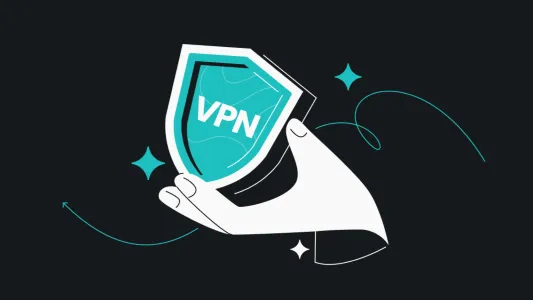
A Virtual Private Network (VPN) is a crucial tool in today's digital age, offering numerous advantages to help you stay secure online.
What is a VPN?
A VPN, or Virtual Private Network, is a technology that establishes a secure connection between devices over a medium like the public Internet. It safeguards your connection from data theft and other security threats by masking your IP address and encrypting all transmitted data.
In simple terms, a VPN is a tool that ensures your device has a safe and protected connection to the Internet.
Typically, it comes as software that you install on your Internet-connected device. This could be a dedicated app for your computer or mobile device or a built-in feature within your browser.
What is a VPN Used For?
A VPN can provide security when using public Wi-Fi networks. Public Wi-Fi is often vulnerable to cyberattacks and hacks, but using a VPN offers extra protection for user data.
Additionally, a VPN can secure remote work for employees. They can connect to the corporate network via a VPN, enabling them to work remotely with their data securely protected.
Benefits of using VPN services include:
- Security: A VPN protects data from theft and leakage, ensuring privacy and safety.
- Confidentiality: A VPN hides your real IP address, making it difficult to track your online activities.
However, there are also some disadvantages:
- Speed: Using a VPN can slow down your Internet connection.
- Reliability: Some free VPN services might not be trustworthy and may not provide adequate security.
How Does a VPN Work?
A VPN service runs on your device, encrypting all transmitted data and creating a secure channel between your device and the Internet. When you use a VPN app or browser extension, all sent or received data passes through this secure channel, ensuring complete privacy and security.
How to Use a VPN?
To use a VPN, follow these steps:
- Choose a Reliable VPN Service: Select a trustworthy VPN service that offers data encryption and does not log user activity.
- Install and Configure: Download and install the VPN application on your device (phone, tablet, or computer).
- Launch the App: Open the VPN app and sign in to your account if necessary.
- Select a Server: Choose the VPN server you want to connect to. Providers usually offer several servers in different countries.
- Connect: Tap "Connect" and wait for the application to establish a connection with the VPN server.
- Browse Safely: Once connected, you can use the Internet securely and privately.
In summary, a VPN is a valuable tool that enhances the security and protection of your Internet connection. VPN services encrypt all your data and hide your IP address, making it difficult for anyone to track your online activities.
However, it's important to remember that a VPN is not a foolproof solution and should be used in conjunction with other security measures, such as strong passwords and regular software updates.
 DEX
DEX